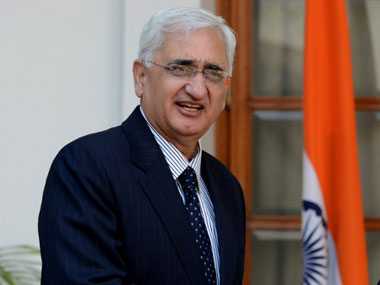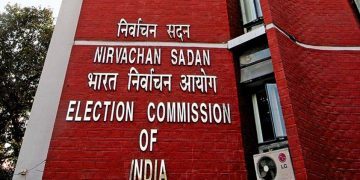New Delhi: Rajesh Pilot, who was in-charge of internal security when the Babri mosque was demolished December 6, 1992, had gone to meet the then prime minister Narasimha Rao on disperse the crowd at Ayodhya on that fateful day but his “ideas remained stillborn” as the latter was asleep, says a new book.
Salman Khurshid, who was a junior minister in the Rao cabinet that time, mentions this in his book “Visible Muslim, Invisible Citizen: Understanding Islam in Indian Democracy”.
The immediate aftermath of the demolition of the mosque saw communal riots rage in many parts of the country.
Khurshid also says that the demolition appeared to have put a question mark on the rule of law. “Late on December 6, I visited Rajesh Pilot to urge him to do something as the crowds had continued to mill around the site. He agreed that he should fly to Faizabad if some of the younger ministers could prevail on the prime minister,” Khurshid recalls.
“I rushed to (C K) Jaffer Sharief to get him to call the PM. He did and the PM suggested we get in touch with the principal secretary, A N Verma, or the home secretary, who was expected to fly to UP shortly,” he writes in the book, scheduled to be released Friday.
Verma had some queries and was not clear if the trip could be made right away. “So we rushed back to Pilot to confer on what our response ought to be. As the clock was ticking, a final round at Sharief’s residence got us answers, but when he called the PM again, the latter was asleep,” Khurshid says.
Fortunately, he says, by the next day, the paramilitary was able to push most of the crowd away once it became apparent that there were plans of putting a roof over the idol.
“The demolition appeared to have put a question mark on the rule of law, or at least on institutional capacity, if not intention, to preserve constitutional guarantees. Different people reacted in different ways, some desperate and others philosophical. Neither attitude seems to have achieved its objective,” the Congress leader says.
The book, brought out by Rupa Publications, seeks to explain Islam to non-Muslims, place the identity of the Indian Muslim in the context of Indian democracy, and decipher the Muslim mind in social and political contexts, beyond theology. “This book is about Islam as well as about Muslims, particularly Indian Muslims. In a sense, the two need not always be equated in a book, because it is quite possible to write about the two separately,” says Khurshid.
“The title of this book is in a sense about cause and effect, just as it implies a strategy and a purpose. It is also about the difficulty of being a Muslim coping with notions of ‘good Muslim’ and ‘bad Muslim’, arising from the advent of what is inaccurately called jihadist Islam,” he says.






































